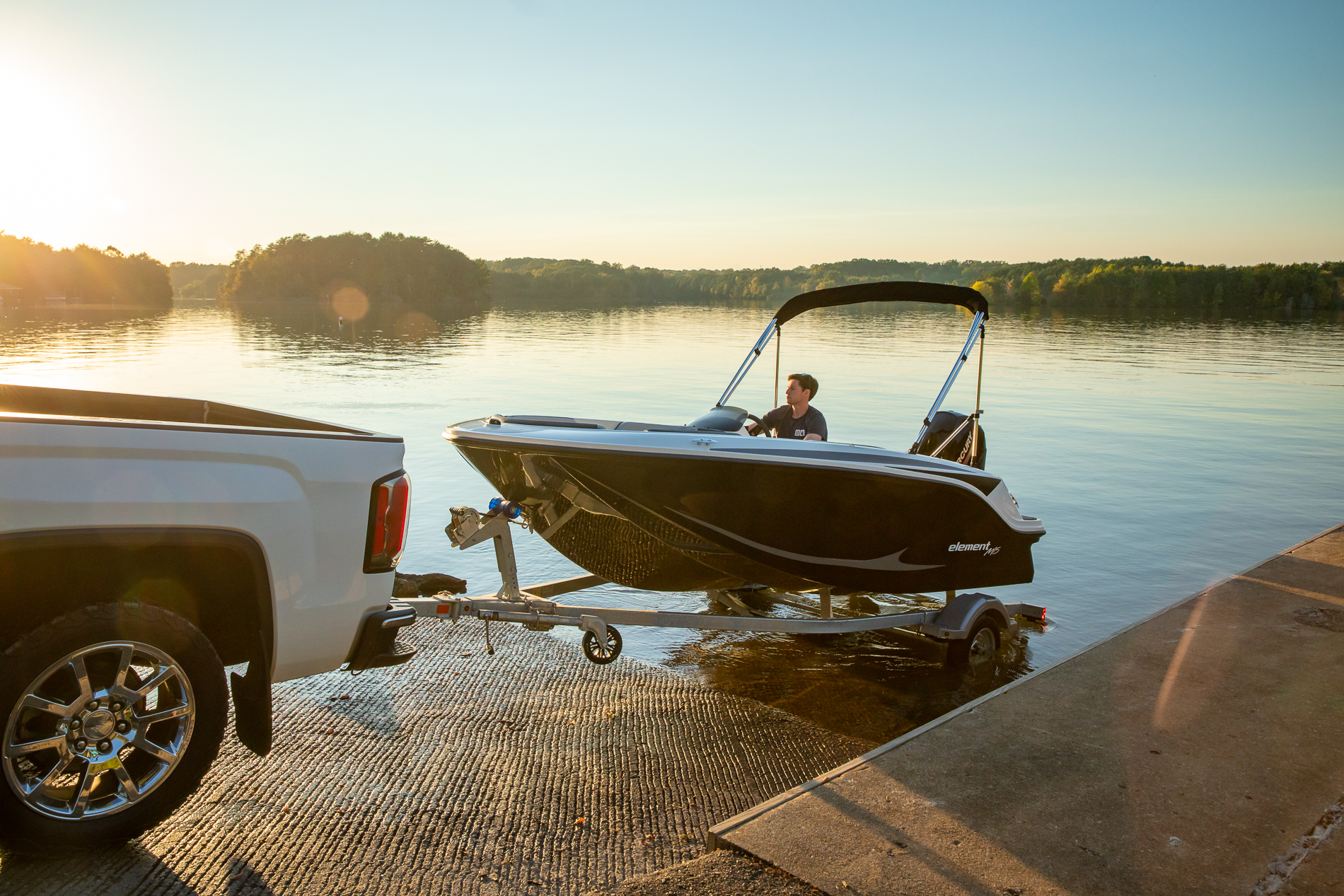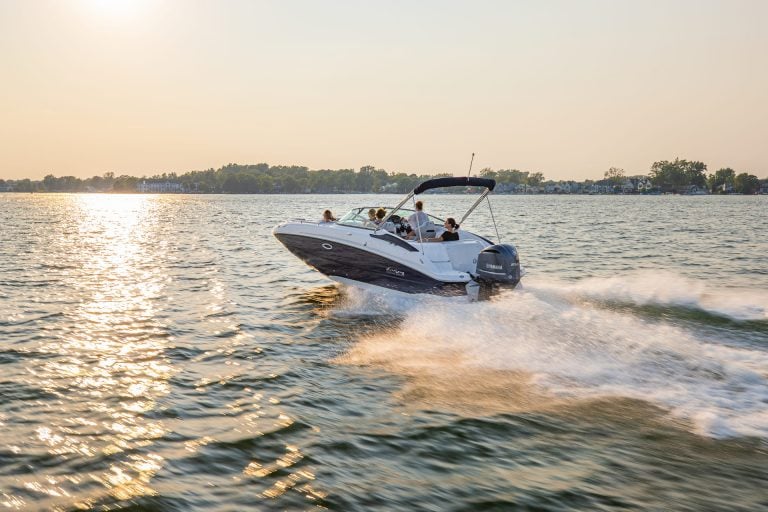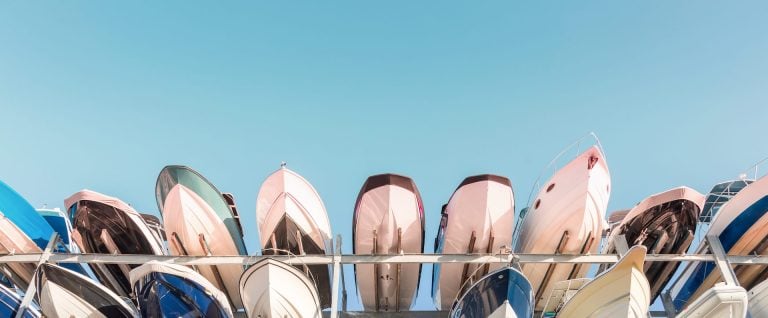

Unless you’re buying your boat, docking it, launching it, and storing it all at the same marina (like Woodard Marine), chances are you will need to transport your boat from point A to point B.
Trailering a boat can be complicated, especially if you don’t understand all the requirements or what equipment you need. In this article, we’ll give you a brief overview of everything you need to safely transport your boat and why they’re important.
Boat trailers come in different styles, lengths, and weight limits, so it’s important to make sure you buy one that’s made for your type of boat. Characteristics to consider include:
If you’re not sure what type of trailer your boat requires, be sure to ask your dealer.
If you already have a trailer hitch on your vehicle, it’s important to be aware of its class. Class III hitches are the most common and can typically handle loads up to 5,000 lbs. If the combined weight of your boat, trailer, and cargo is more than that, you will need a Class IV or V hitch (and a large vehicle for towing).
You may also need to make sure you’re using the correct drawbar and tow ball for your trailer. The drawbar should be at the right height to make your trailer level with the ground. As for tow balls, trailers typically have the correct ball size engraved on the tongue for easy reference.
Safety chains hook from your vehicle to your trailer, crossing over once in the middle, under the hitch and coupler. They act as a backup if either your tow ball or coupler were to fail, and will help prevent damage to your boat and trailer (and other vehicles on the road). Remember to purchase a set of chains with a high enough weight capacity for your needs, and check them often for wear and tear.
You also need to be sure that your trailer has a balanced tongue weight, which is the amount of downward force put upon the hitch. The rule of thumb varies, but it should be somewhere around 10% of the combined weight of your boat and trailer.
Having too much or too little will make the trailer tilt forward (too much) or backward (too little). If the tongue weight is off, your boat can fishtail (too light) or make it hard to steer your vehicle (too heavy).
You can determine the weight by using a tongue weight scale or a vehicle scale. If the numbers are off, you can redistribute the weight of your boat forward or backward to increase or decrease the weight on the tongue.
A trailer jack goes under the tongue to raise it up so you can connect or disconnect it from your vehicle’s hitch. They come in different lift capacities, so you must make sure to use one that’s able to handle your tongue weight.
Trailer jacks aren’t known to be the longest-lasting towing accessory, so it’s a good idea to regularly inspect yours for wear and keep a spare one on hand.
A common mistake when trailering your boat is forgetting to bring a trailer plug adapter, which are fairly inexpensive, but serve an important purpose. The plug adapter runs power to your trailer’s tail lights, brake lights, and turn signals. It’s illegal to drive a trailer without working lights, so you could get pulled over if you forget to use a plug adapter.
More importantly, remember that when you’re towing a boat, other drivers likely won’t be able to see the lights on the back of your vehicle. Using a plug adapter to power your trailer’s lights can help prevent an accident.
Depending on your trailer, the adapter plug also powers your trailer’s brakes, making it doubly important not to forget it.
It doesn’t matter what kind of trailering equipment you have if your vehicle isn’t physically capable of pulling the weight of your boat and trailer.
You might be surprised that it doesn’t necessarily take a large truck or SUV to trailer a boat; it just depends on the weight of your boat and your vehicle’s towing capacity. Many cars and crossovers are capable of towing smaller boats, especially if you purchased a towing package when you bought it.
Check your owner’s manual or online to confirm your vehicle’s towing capacity (and whether towing is recommended at all). Be sure that your combined boat, trailer, and cargo weight remains safely below the capacity so you don’t risk damaging your car.
If you need a new trailer or trailering equipment in order to safely transport your boat, reach out to Woodard Marine’s service department. We can order just about any trailering equipment you need and give you advice on how to use it!
Send us a message, give us a call at (802) 265-3690, or visit our Parts & Service department at 615 Creek Road, Castleton, VT.


